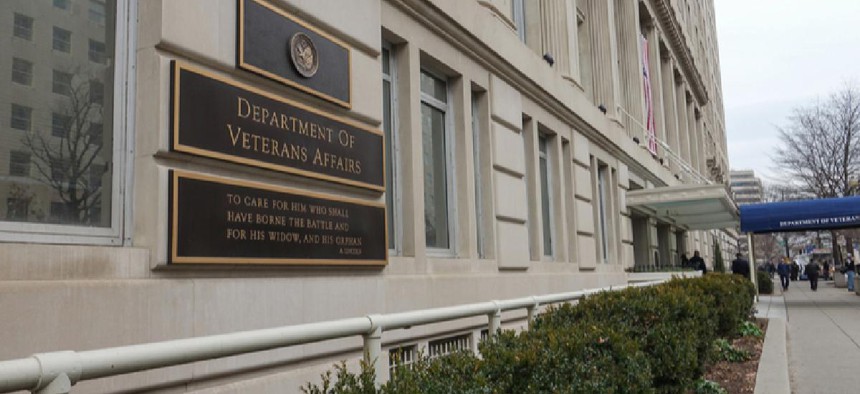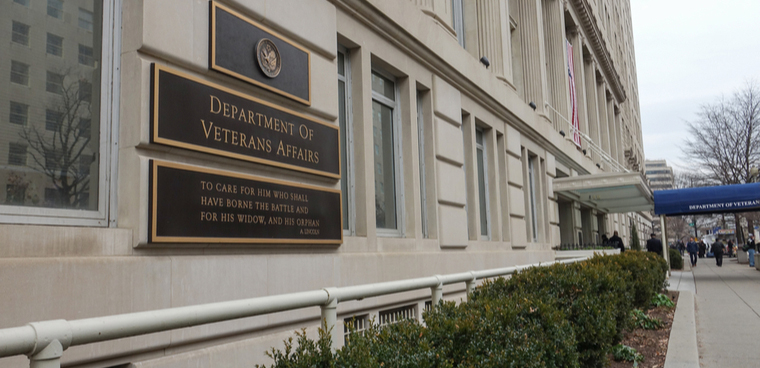VA to rebid failing GI Bill benefits contract

The Department of Veterans Affairs announced a reset on a troubled software project needed to deliver education benefits to veterans, but can it get things on track in a year?

After taking a beating in Congress and the media over failed efforts to roll out updates to its GI Bill payment systems, the Department of Veterans Affairs announced plans for a reset on the project, including a rebid of software and integration contracts.
At issue are changes to calculations for housing allowance payments required under the Harry W. Colmery Veterans Educational Assistance Act of 2017, known as the Forever GI Bill. The new variables, having to do with the location of schools and veterans and how those figure in to housing allowances, combined with VA's web of antiquated systems, proved to be a recipe for disaster.
While the system was supposed to be up and running by Aug. 1, in time for veteran students enrolling in the fall semester, that projection proved too optimistic. The VA turned to manual processing of the benefits, which in turn has led to a backlog and complaints about incorrect or missing payments.
At a Nov. 29 hearing of the House Veterans Affairs Committee, Under Secretary for Benefits Paul Lawrence rebutted what he called a "misleading" NBC News story on the issue, which stated that some veterans will never receive the full housing benefit because of the tech problems. Lawrence said that the Veterans Benefits Administration is going to recompute payments using 2018 rates, "and we will make those people whole." He added that the VA is not going to pursue debt claims for any veterans who were overcompensated by the system and that underpaid veterans "will get a check in January."
Lawrence also pledged that VA would be ready in December of 2019 to roll out a system that will cover the Forever GI Bill benefits by the spring of 2020.
Lawmakers have already been scratching their heads over why this functionality -- calculating housing allowances based on a few geographic variables such ZIP code -- is taking so long.
"While I'm certainly not an IT expert, I cannot understand why 15 months after this law was passed, we're sitting here asking these questions," Rep. Jodey Arrington (R-Texas) said at a Nov. 15 hearing on the benefits problems.
Now that VA has pledged to conduct a new procurement to find a contractor to design software for benefits delivery and integrate it with existing systems, the question arises whether the veterans agency can meet its new Dec. 2019 deadline.
While 13 months seems a long way off, that is not much time for a new procurement and software development and testing, according to one former VA technology executive who spoke on background to FCW.
"Next year is aggressive," the former official told FCW. "The legacy infrastructure of the VBA systems is so old and antiquated, and it's now showing its face."
That assessment isn't far off from what Bill James, a deputy CIO at VA, offered at the Nov. 15 House hearing.
Prior to the passage of the GI Forever Bill, James said, there was a "broad modernization effort in place," to upgrade and rationalize the cluster of interdependent legacy systems involved in paying veterans benefits.
"We shifted from that broad modernization to focus on [the Forever GI Bill] because we had a deadline to achieve," James said.
The former official said any redeveloped system will likely run into the same problems VA is facing now.
"It still has to work with everything else. It's not just an education system. There are a great deal of dependencies within the system," the former official said. "That's why it's so complex."
NEXT STORY: GSA to consolidate multiple award schedules



